Cross Registration FAQ
Cross Registration
What institutions participate in cross registration?
All of the SOCHE members participate. The “home” institution is the institution where you currently are enrolled in a degree program for which academic credit is awarded (the definition of “program” is determined by your institution). The “host” institution is the institution which you would like to attend to cross register for a course.
How do I know if I’m eligible to cross register?
You are eligible for cross registration if you are in good academic standing at your home institution and meet any program eligibility requirements set by the home and the host institutions. At the time of cross registration, you must currently be enrolled at your home institution at the undergraduate, graduate, or professional level in a degree program for which academic credit is awarded (the definition of “program” is determined by your institution).
Who should I contact on my campus to get information about cross registration?
The cross registration coordinator is the campus administrator responsible for assisting students in understanding and completing the cross registration process, ensuring the completion and transmittal of application forms, and helping students meet their responsibilities under the program.
How do I cross register?
You must complete the SOCHE Cross Registration Form. The form must be signed by your academic advisor and by the cross registration coordinator at the home and the host institutions. If the host institution course instructor’s or department’s approval is needed, you may be directed to obtain such approval. If accessibility services are needed, the accommodation plan must be verify by the home institution’s Accessibility/Disability Office. Once all approvals have been obtained, the host institution’s cross registration coordinator will register you for the approved course on a space-available basis after the host institution’s regularly enrolled or continuing students have had first priority for registration.
Where can I obtain a Cross Registration Form?
The SOCHE Cross Registration Form is available online here.
Are there any restrictions on the types of courses for which I may cross register?
In general, you may not cross register at another institution if the desired course is available at your home institution during the same term and the course must be required for your current program of study. In addition, cross registration may not be used to register for non-credit continuing education courses, study aboard course, workshops, seminars, etc.
When and where do I pay my tuition for a cross registration course?
Students may cross register so long as they pay all regular tuition and fees, when due, to the home institution. Special fees (lab, parking, etc.) normally paid by the host institution’s students must be paid to the host institution by cross registration students.
What is my student status at the host institution?
If you register for a course through cross registration, you are considered a visiting student (which does not constitute regular admission to the host institution).
How can I obtain accommodations at the host institution?
Students requiring accommodations from accessibility services must coordinate with the home Accessibility/Disabilities Office. The services are the responsibility of the home institution.
What is the maximum number of courses I can take through cross registration?
Students are restricted to a maximum number of courses/hours per program of study throughout their program course of study.
- Associate program: 15 hours
- Undergraduate program: 30 hours
- Graduate programs: Subject to the discretion of the two institutions
How are grades for cross registration courses handled?
As a cross registration student, you are graded according to the academic standards and grading practices of the host institution. Upon completion of the course, the cross registration coordinator of the host institution will ensure that your transcript is sent to the cross registration coordinator of your home institution for inclusion on your official transcript.
What about cross-consortial registration?
Students enrolled in SOCHE member colleges and universities may also cross-register with members of the Greater Cincinnati Consortium of Colleges and Universities (GC3), according to the Cross-Consortial Guidelines. For more information about the GC3 institutions, visit www.gccollegiateconnection.org.
Glossary
Program allows degree-seeking students access to academic opportunities not available at their own institutions to maintain their current home institution program of study. All registrations are subject to the approval of home and host registrars.
A student enrolled in courses for credit in active pursuit of a associate’s, bachelor’s, master’s, or doctoral degree.
The Greater Cincinnati Consortium of Colleges and Universities (GC3) is a regional consortium of 18 colleges and universities that promotes higher education in the Greater Cincinnati area. https://www.gccollegiateconnection.org
The institution where the student is currently enrolled in a degree program for which academic credit is awarded.
The institution where the student would like to cross-register for a course.
Coursework that is required prior to enrolling in a more advanced course(s).
Program of Study refers to the degree for which the student is currently enrolled at the home institution. The SOCHE Cross Registration Program only applies to courses in the student’s current degree program, whether that be at the associate’s, bachelor’s, or graduate level, and may include courses toward completion of a minor or certificate that are associated with the degree program, as determined by the home institution.
Formed in 1967, SOCHE is a consortium of colleges and universities that collaborates with K-12 schools, colleges and universities, governments, and businesses to transform Ohio communities and economies through the education, employment, and engagement of students.


